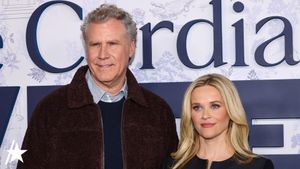Robert F. Kennedy Jr., nominated by President Trump to lead the Department of Health and Human Services, has committed to divesting his financial stake from lawsuits surrounding Merck's HPV vaccine, Gardasil. This decision follows intense scrutiny during his Senate confirmation hearings, where concerns were raised about potential conflicts of interest affecting his ability to impartially oversee health regulations.
During the confirmation hearings on January 31 and February 1, 2025, Senators expressed alarm over Kennedy’s financial ties to cases where patients allege injuries from the vaccine, which are being pursued by the personal injury law firm Wisner Baum. Specifically, Kennedy revealed he has referred hundreds of cases to this firm, raising questions about his ability to serve effectively as health secretary without personal gain influencing decisions. Initially, he had indicated he would continue earning referral fees, but mounting pressure has led him to reconsider.
Kennedy's change of heart was articulated clearly when he stated, "An amendment to my Ethics Agreement is in process, and it provides I will divest my interest in this litigation." This pledge to forfeit any potential profits marks a significant shift from his earlier stance, where he seemed entitled to such earnings, provided they did not involve the U.S. government.
Senator Elizabeth Warren, who is known for her stringent scrutiny of ethics related to government nominations, articulated her concerns during the hearings. She claimed, “Kennedy can kill off access to vaccines and make millions of dollars... Kids might die, but Robert Kennedy can keep cashing in.” Such statements underscored apprehensions about how Kennedy’s role could potentially undermine public health initiatives and access to vaccines, especially when it involves legal challenges against manufacturers.
With his history as both an attorney and anti-vaccine advocate, Kennedy's financial motivations have been contentious. The firm he is partnered with, which has taken on lawsuits against Merck, has claimed the HPV vaccine saves lives, advancing public health goals by preventing infections leading to cancers. Nonetheless, Kennedy has been accused of spreading misinformation about vaccine safety, particularly claiming the HPV vaccine may increase cancer risks.
If confirmed, Kennedy would oversee the Food and Drug Administration's (FDA) decisions on vaccine safety and drug approval processes, making his past financial engagements even more problematic. Senator Bill Cassidy, also weighing his vote on Kennedy’s nomination, noted skepticism about someone with such vested interests overseeing health policy: “Kennedy is financially vested in finding fault with vaccines.”
Under nerd scrutiny, Kennedy's commitment not to engage financially with the vaccine litigation is not only about ethics. It's also about restoring some degree of trust among the legislative body and the public at large. Many lawmakers have called for stricter regulations ensuring cabinet members cannot profit from their services during and after their terms.
Despite his change of stance, Kennedy faced difficulties gaining full support, as Democrats have largely unified against him, concerned about his previous offensive comments and anti-vaccine lobbying. His responses and clarifications were reported extensively, showing he still retained the right to sue pharmaceutical companies, leading to unease among lawmakers about his motivations and decisions should he gain the powerful position.
Some speculate whether Kennedy’s son, whom he indicated interests would go to, might benefit indirectly from his actions if he remains vocal and involved with vaccine litigation. With Kennedy having disclosed past earnings totaling over $850,000 for unrelated referral fees, there is every reason to suspect there could still be financial incentive from other channels.
Kennedy's history as both activist and lawyer fuels the narrative of potential danger; the email and written statements to the Senate committee show his lawyers are drawing up amendments to solidify his dissociation from financially incentivized lawsuits.
Ethics rules explicitly bar government officials from benefiting directly from their decisions; restrictions exist, especially for minor children. Yet among adult children, exceptions exist, which have led critics to caution against overlap between Kennedy’s public role and his family’s private enterprises.
Currently, all eyes turn to the Senate Finance Committee. Members are expected to vote on Kennedy's nomination soon. Given the divisiveness surrounding his appointment, it’s evident if he cannot secure enough votes, Kennedy may not assume office. There’s room for maneuver, and the possible outcome stands to impact the perception of health policies—especially when it relates to vaccine legislation and advocacy.
Passed amid the chaos, Kennedy remains steadfast against lobbying after his potential term, presenting himself as dedicated solely to the public interest, engaging critically with his previous background, and responding to debate over his preparations for overseeing significant changes. Ahead lies uncertainty surrounding his confirmation process and the broader issue of ensuring ethical standards within the ranks of those tasked with protecting public health.



